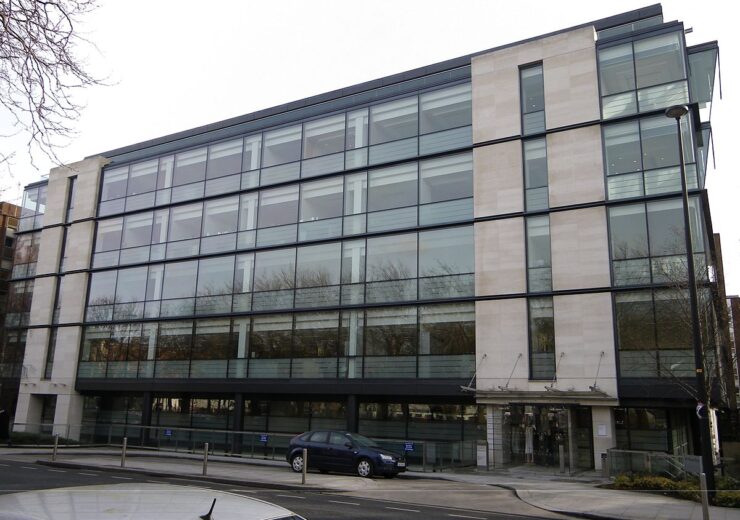Bank of Ireland will close 88 out of its 257 branches in Ireland and 15 of 28 outlets in Northern Ireland, and operate the remaining 182 branches

Bank of Ireland current headquarters in Dublin. (Credit: Cqui/Wikipedia.)
Bank of Ireland has announced its plans to shut 103 branches in the Republic of Ireland and Northern Ireland, starting from September this year.
After closing 88 out of its 257 branches in Ireland and 15 of 28 outlets in Northern Ireland, the firm will operate the remaining 182 branches.
The premier banking firm said that the Covid-19 pandemic has advanced digital banking, driving customers away from its branch offices.
In relation to the branch closure, the bank has entered into a new partnership with An Post, the state-owned provider of postal services in the Republic of Ireland.
Under the partnership, An Post will provide Bank of Ireland customers with banking services at more than 900 locations across the country.
Bank of Ireland announces 2020 financial results
Bank of Ireland has made the branch closure statement in its financial results 2020 announcement.
The company’s loss before tax was €760m for the full-year 2020, compared to a profit of €645m for the year 2019.
Bank of Ireland’s underlying loss before tax was €374m for the full-year 2020, which decreased compared to €758m for the full-year 2019.
The group reported a regulatory CET1 ratio of 14.9% for 2020, which is around 150bps above the minimum regulatory requirements.
The company attributed the losses to decreased new lending volumes and the impact of lower interest rates due to Covid-19.
Bank of Ireland Group CEO Francesca McDonagh said: “Through an exceptionally challenging year, our focus was on supporting our customers through every stage of the Covid-19 crisis while continuing to deliver our strategy.
“When COVID-19 hit, we radically changed how we operate so that we could provide the services our customers needed, including payment breaks for mortgages and business loans.
“Our speed of response was made possible by the investments we have made in transforming our culture, systems and business model.”
